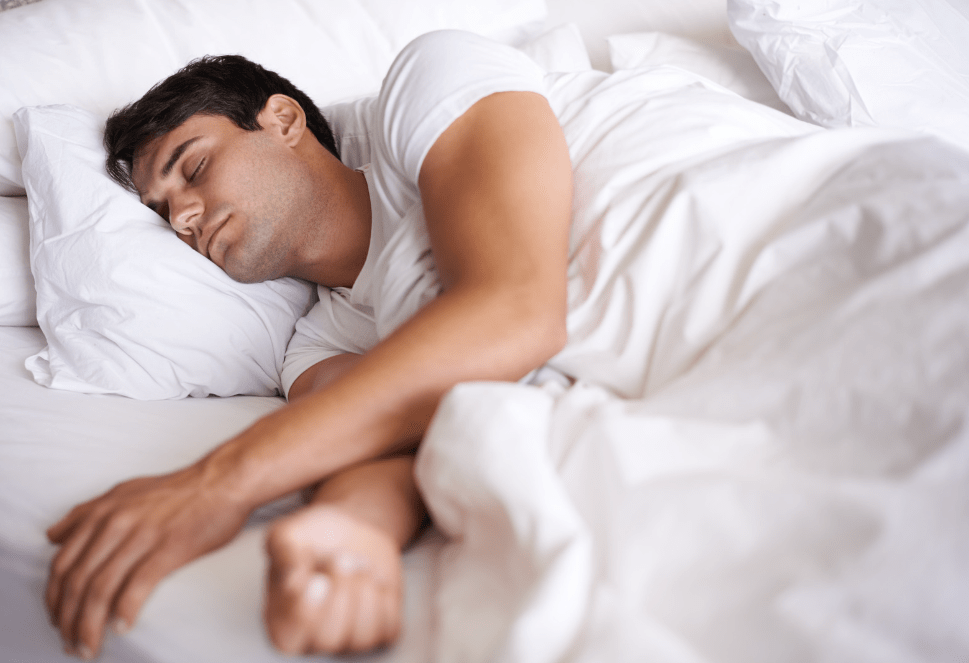Achieving quality sleep is essential for overall health. A good night’s sleep strengthens the immune system, enhances cognitive function, and supports emotional well-being. Without sufficient rest, the risk of issues such as high blood pressure, depression, and obesity can increase. Thankfully, various natural remedies offer effective ways to improve sleep without relying on medication. Below, we’ll explore different approaches to boost sleep quality, each providing unique benefits for rest and relaxation.
Herbal Teas and Supplements
Herbs and natural supplements are some of the oldest remedies for sleep, with many offering calming effects that ease both body and mind into relaxation.
- Chamomile Tea is known for its mild sedative properties. Sipping a warm cup of chamomile tea about half an hour before bedtime can gently relax your muscles and calm nerves, preparing your body for sleep.
- Valerian Root has gained popularity as a natural sleep aid. It’s known to reduce the time needed to fall asleep, making it helpful for insomnia or restlessness.
- Lavender is another versatile herb. Lavender tea or essential oil can be aromatic and relaxing, reducing anxiety and creating a peaceful atmosphere for sleep.
- Passionflower promotes calmness by increasing GABA levels, which helps relax the nervous system.
- Magnesium Supplements are essential for various bodily functions and can help with sleep by easing muscle tension and reducing stress.
Tip: Create a bedtime ritual with herbal tea or supplements to reinforce your body’s association with these aids and sleep.
Mindfulness and Relaxation Techniques
Relaxation techniques can greatly aid the mind and body in transitioning to sleep. Incorporating a few simple practices can shift mental and physical states toward restfulness:
- Deep Breathing Exercises help activate the body’s relaxation response. Practicing deep breaths at a slow pace can reduce stress and prepare the nervous system for rest.
- Progressive Muscle Relaxation (PMR) involves tensing and releasing each muscle group. By focusing on muscle relaxation, you’ll release physical tension built up throughout the day.
- Mindfulness and Meditation help quiet the mind. Guided meditation practices, especially ones focusing on sleep, are widely accessible through apps and can be a quick way to wind down.
- Visualization allows your mind to let go of daily worries. By picturing a calming scene, like a forest or a beach, your thoughts can naturally relax, supporting sleep.
Tip: Try guided exercises using apps or online resources that are specifically designed for sleep improvement.
Aromatherapy for Sleep
Aromatherapy is a popular, natural way to ease the mind and body into a restful state, leveraging the power of essential oils:
- Lavender Oil is perhaps the most well-known for sleep. Its aroma can reduce stress levels, encourage relaxation, and improve sleep quality when diffused in the bedroom.
- Cedarwood Oil has sedative properties that help lower anxiety. Applying a few drops on your pillow or in a diffuser can enhance the calmness needed for rest.
- Roman Chamomile oil has a soothing aroma that promotes a gentle, relaxing effect and helps ease tension.
- Bergamot essential oil, known for its calming effects, can lower blood pressure and support an overall sense of calm.
Tip: Diffuse a few drops of your favorite essential oil or spray your pillow lightly before bed to create a sleep-inducing environment.
Creating a Sleep-Inducing Environment
Creating a relaxing sleep environment is key to quality rest. With simple adjustments, your bedroom can become a haven for sleep:
- Darkness helps signal the body that it’s time to sleep, so blackout curtains or an eye mask can block out disruptive light and support melatonin production.
- Cool Temperature is recommended for better sleep, typically around 65°F (18°C). A cooler room helps regulate the body’s internal temperature.
- Quietness can be essential; consider using earplugs or a white noise machine to block out background sounds that may disturb sleep.
- Comfortable Bedding provides essential support. A comfortable mattress, supportive pillows, and soft bedding can make a difference in how well you sleep.
Tip: Reserve the bedroom for sleep and relaxation only; avoid activities like work or TV-watching in bed to train your mind to associate the space with rest.
Nutritional Adjustments for Better Sleep
The foods we eat can have a significant impact on sleep patterns and sleep quality. Certain nutrients can help support natural sleep cycles:
- Tryptophan-Rich Foods, such as turkey, eggs, and nuts, support melatonin production by providing this essential amino acid.
- Complex Carbohydrates like whole grains may support serotonin production, a hormone that promotes relaxation.
- Bananas are high in potassium and magnesium, both of which help relax muscles and improve sleep quality.
- Avoiding Caffeine and Sugar late in the day is essential, as these can stimulate the nervous system and interfere with natural sleep processes.
Tip: A light snack, such as a handful of almonds or a banana, can help stabilize blood sugar levels before sleep.
Exposure to Natural Light and Managing Screen Time
Exposure to natural light during the day and limiting screen time at night are effective for regulating the body’s circadian rhythm:
- Morning Sunlight exposure helps reset the body’s internal clock, which can make falling asleep easier at night.
- Blue Light Exposure from screens interferes with melatonin levels and makes falling asleep harder. Reducing screen use at least an hour before bed can help.
- Blue Light Blocking Glasses filter out the blue light from screens and reduce its impact on melatonin.
Tip: Set a wind-down routine involving relaxing, screen-free activities like reading or journaling.
Regular Physical Activity
Physical activity can improve sleep quality, but timing and intensity play important roles:
- Morning or Early Afternoon Workouts help regulate energy and stabilize circadian rhythms. Physical activity during these hours improves sleep duration and quality.
- Avoiding Late-Night Exercise is essential, as intense exercise in the evening may stimulate the nervous system and make it harder to relax.
Tip: For an evening routine, consider gentle stretches or yoga to prepare the body for rest without overstimulating it.
FAQs
Q1: Can natural remedies for sleep replace medications for insomnia?
A: Natural remedies may aid in improving sleep quality for those with mild or occasional sleep issues. However, chronic insomnia might require consultation with a healthcare professional. Remedies such as herbal teas, aromatherapy, and relaxation techniques are excellent supplements, but they may not completely replace prescription medications for severe cases.
Q2: How quickly do natural remedies for sleep take effect?
A: The timing varies based on the remedy and individual response. Herbal teas and supplements may work within 30 minutes to an hour, while mindfulness and meditation may require regular practice over several days to see a change in sleep patterns.
Q3: Can aromatherapy irritate allergies?
A: Some essential oils might trigger allergies. Testing oils beforehand, especially lavender and cedarwood, is wise, as certain scents can sometimes cause mild reactions.
Conclusion
Achieving better sleep naturally can make a significant difference in overall well-being. Exploring herbal remedies, establishing a relaxing bedtime routine, and creating an ideal sleep environment are simple yet effective ways to enjoy deep, restorative sleep. With consistent practice, these methods provide a natural alternative to improve rest and enhance daily energy levels.

